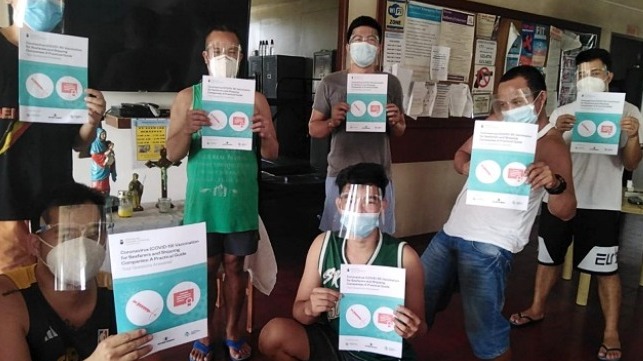
In its latest report, seafarer charity Stella Maris echoed growing concerns about crew mistreatment, including abandonment, unpaid wages and forced labor.
In 2020, abandonment cases soared to a record high. More than twice as many seafarers were abandoned in 2020 compared to 2019, and data from the IMO shows that there were 76 cases involving over 1,000 seafarers, mostly in the Middle East and Asia. By omparison, Stella Maris said, there were 40 cases of abandonment involving 474 seafarers in 2019.
The charity intervened in two abandonment cases in the port of Ravenna, both illustrating two challenges of the pandemic: ship arrests for unpaid bills, and COVID-19 travel restrictions that keep crew onboard.
The cases involved the chemical tanker Gobustan and the general cargo vessel Sultan Bey. Both ships were detained in July 2020 to satisfy charges of outstanding debt. This left 24 crewmembers stranded, because the authorities would not allow seafarers to disembark due to COVID-19 restrictions.
Stella Maris provided them with food, fresh water and other supplies, and it supported them with plans for repatriation. This task required the charity’s team to work through problems like airport closures and flight cancellations, plus sourcing COVID-19 tests for the crew. The men eventually few home in October.
In another case, its chaplain in South Africa supported six seafarers on a detained fishing vessel throughout the course of the year, beginning in December 2019. The charity provided them with food, medication and warm clothing, and it advocated for their release. It took a full year to achieve, but the men were eventually repatriated to Myanmar and Taiwan.
Non-payment of wages was the largest single problem Stella Maris helped seafarers overcome last year (along with death at sea). Like the ITF’s regional coordinators, Stella Maris’ chaplains have intervened on crewmembers’ behalf to petition the vessel operator for proper and full wage payments.
It also had to contend with the impact of COVID-19, including quarantine requirements. It provided 120 seafarers with a total of 150 days of lockdown accommodations in its center in Manila, including regular meals and arrangements for family contact. “We pray always that God will give us support in this difficult situation, and I’m so very thankful to Stella Maris for providing us with food, a place to stay and a small amount of money,” said one second engineer who stayed in the Stella Maris center during the lockdown. Altogether, nearly 1,300 seafarers received food and toiletries from Stella Maris during the first lockdown in the Philippines.
The charity’s chaplains adapted to social distancing and quarantine measures by meeting seafarers at the gangway, not on board; providing live-streamed mass for those who could not attend church; and phone cards carefully and safely delivered. These kinds of opportunities to connect with the outside world face-to-face are essential in a time of lockdown, according to Stella Maris: fully 100 percent of the seafarers it surveyed said that they had suffered from psychological stress over the course of the year.
“Our latest Life at Sea Report observes that, in a maritime world of increased digitalization and automation, smaller crews and faster port turnaround times, the need for basic human contact remains paramount,” said Stella Maris CEO Martin Foley. “In the face of the world’s collective failure to provide timely repatriation for seafarers, and the continued absence of a global vaccination or keyworker policy for seafarers, hundreds of thousands of seafarers remain in need of many kinds of support.”
SOURCE READ THE FULL ARTICLE
https://www.maritime-executive.com/article/stella-maris-highlights-crew-welfare-challenges-of-the-pandemic-era